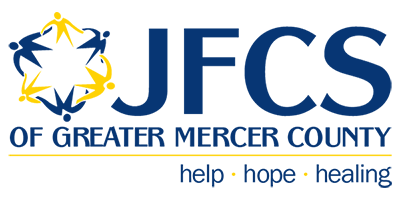Managing Seasonal Affective Disorder During the Pandemic
As we brace for the winter months when the days will grow shorter and become darker, the psychological effects of the lack of sun can go beyond “winter blues” to a form of depression known Seasonal Affect Disorder (SAD). According to the National Institute of Mental Health, SAD is a type of depression that comes and goes with the seasons, typically starting in the late fall and early winter and going away during the spring and summer. Depressive periods linked to the summer can occur but are much less common than winter episodes of SAD. It is estimated that SAD effects five percent of the U.S. population each year. With the additional complications and stress of the COVID-19 pandemic, the effects of SAD may be more pervasive than usual this year.
 Why is sunlight so important? Exposure to sunlight is believed to increase a hormone in the brain called serotonin which is associated with boosting your mood and helping you to feel more focused and calmer. The darker lighting at night triggers the brain to make another hormone called melatonin which is responsible for helping you sleep.
Why is sunlight so important? Exposure to sunlight is believed to increase a hormone in the brain called serotonin which is associated with boosting your mood and helping you to feel more focused and calmer. The darker lighting at night triggers the brain to make another hormone called melatonin which is responsible for helping you sleep.
Symptoms of SAD are similar in nature to the symptoms of any other depression: feelings of sadness, difficulties getting out of bed, sleep problems, low energy, loss of interest in activities, difficulty concentrating and feelings of hopelessness or thoughts of death or suicide. In addition, SAD symptoms might include a craving for carbohydrates, overeating, turning to drugs, alcohol or tobacco to cope, self-isolation/distancing more than what is recommended.
To avoid or at least minimize SAD symptoms, it would be helpful to start now and establish good mental health habits rather than wait when the shorter and colder days are upon us. Here are some strategies to try:
If you cannot go outside, bring the sun indoors.
Light therapy can be a great way to fool your brain into making more of the chemicals that make you feel good — the same chemicals that you’re missing during a bout of seasonal depression. Search for lights that mimic natural light or light therapy boxes.
Healthy body and healthy mind.
Eat healthy, get plenty of exercise, meditate, engage in spiritual connectedness, and stimulate your intellectual curiosity by exploring new ideas.
Essential oils.
There are a variety of essential oils that are recommened to help relieve symptoms of SAD; such as, bergamot, lavender, sandalwood, sage, basil, chamomile, lemon, peppermint, jasmine, and orange.
Do what you enjoy.
Make time for your hobbies – music, cooking, playing an instrument, dancing, drawing or journaling.
Balanced life.
Make an effort to achieve balance between your personal and professional life and treat them as two different worlds. This is especially important for anyone working from home because of COVID-19. Try and keep separate spaces for work/school and relaxation; remember to “log-off” after your usual work day and disconnect fully when transitioning to your personal time.
Get support.
If your symptoms are affecting your daily life and functioning, a licensed therapist can provide you with a variety of coping skills and support to improve your mental health well-being. JFCS is here for you. Call 609-987-8100 to schedule an appointment with one of our licensed professionals.
You can also be immediately connected with a counselor during our Phone Drop In Hours:
Monday, Wednesday, Friday 10 AM – 12 PM
Tuesday & Thursday 5 – 7 PM
Shirley Bellardo, LCSW, LCADC (Director of Clinical Services)


